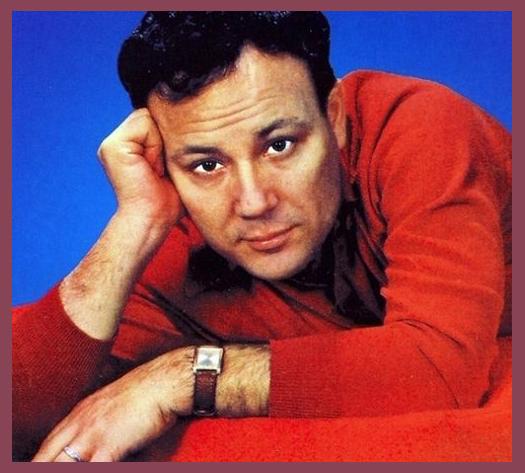 Claudio Villa
Claudio Villa
Claudio Villa: The Maestro of Italian Song
Claudio Villa, the legendary Italian singer, emerged as a cultural icon whose voice captivated audiences worldwide. His signature song, "Torna a Surriento," became an enduring anthem of longing and nostalgia.
Early Life and Musical Influences
Born in Rome in 1926, Villa's early life was marked by poverty and hardship. Despite these challenges, his unwavering love for music ignited a spark within him. Inspired by Neapolitan folk songs and the mellifluous vocals of his idol, Enrico Caruso, Villa honed his vocal abilities from a tender age.
Rise to Stardom
In 1946, Villa's career took flight when he joined the orchestra of maestro Carlo Buti. His captivating performances and charismatic stage presence quickly propelled him to fame. By the early 1950s, he had become one of Italy's most beloved singers, known for his soaring vocals and heartfelt renditions of romantic ballads.
Controversies and Challenges
Villa's success was not without its controversies. His flamboyant lifestyle and outspoken nature often landed him in the headlines. In 1962, he was embroiled in a high-profile scandal involving a love affair with a married actress. Despite the setbacks, Villa's popularity remained undiminished, as his fans were captivated by his honesty and vulnerability.
Signature Song and Global Recognition
"Torna a Surriento," written by Ernesto De Curtis, became Villa's most iconic song. Its sweeping melody and evocative lyrics, expressing the yearning of a Neapolitan expatriate for his beloved hometown, resonated deeply with audiences both in Italy and abroad. Villa's rendition of the song became so synonymous with the genre that it earned him the title of "Maestro of Neapolitan Song."
Discography and Collaborations
Throughout his prolific career, Villa released an extensive discography spanning over 1,000 songs. His repertoire included traditional Italian folk songs, operatic arias, and popular ballads. He collaborated with renowned artists such as Ennio Morricone, Mina, and Domenico Modugno.
Legacy and Impact
Claudio Villa passed away in 1987, leaving behind a legacy of timeless music that continues to inspire generations of singers and listeners alike. His ability to evoke raw emotions with his voice cemented his status as a true icon of Italian culture. The melodies he sang live on as a testament to his artistry and the enduring power of music.
Members and Band
Claudio Villa performed primarily as a solo artist, accompanied by various orchestras and backing vocalists throughout his career. He did not have a permanent band in the traditional sense, but often collaborated with musicians such as the Orchestra Sinfonica di Roma and the Coro del Teatro alla Scala.
Claudio Villa, the legendary Italian singer, emerged as a cultural icon whose voice captivated audiences worldwide. His signature song, "Torna a Surriento," became an enduring anthem of longing and nostalgia.
Early Life and Musical Influences
Born in Rome in 1926, Villa's early life was marked by poverty and hardship. Despite these challenges, his unwavering love for music ignited a spark within him. Inspired by Neapolitan folk songs and the mellifluous vocals of his idol, Enrico Caruso, Villa honed his vocal abilities from a tender age.
Rise to Stardom
In 1946, Villa's career took flight when he joined the orchestra of maestro Carlo Buti. His captivating performances and charismatic stage presence quickly propelled him to fame. By the early 1950s, he had become one of Italy's most beloved singers, known for his soaring vocals and heartfelt renditions of romantic ballads.
Controversies and Challenges
Villa's success was not without its controversies. His flamboyant lifestyle and outspoken nature often landed him in the headlines. In 1962, he was embroiled in a high-profile scandal involving a love affair with a married actress. Despite the setbacks, Villa's popularity remained undiminished, as his fans were captivated by his honesty and vulnerability.
Signature Song and Global Recognition
"Torna a Surriento," written by Ernesto De Curtis, became Villa's most iconic song. Its sweeping melody and evocative lyrics, expressing the yearning of a Neapolitan expatriate for his beloved hometown, resonated deeply with audiences both in Italy and abroad. Villa's rendition of the song became so synonymous with the genre that it earned him the title of "Maestro of Neapolitan Song."
Discography and Collaborations
Throughout his prolific career, Villa released an extensive discography spanning over 1,000 songs. His repertoire included traditional Italian folk songs, operatic arias, and popular ballads. He collaborated with renowned artists such as Ennio Morricone, Mina, and Domenico Modugno.
Legacy and Impact
Claudio Villa passed away in 1987, leaving behind a legacy of timeless music that continues to inspire generations of singers and listeners alike. His ability to evoke raw emotions with his voice cemented his status as a true icon of Italian culture. The melodies he sang live on as a testament to his artistry and the enduring power of music.
Members and Band
Claudio Villa performed primarily as a solo artist, accompanied by various orchestras and backing vocalists throughout his career. He did not have a permanent band in the traditional sense, but often collaborated with musicians such as the Orchestra Sinfonica di Roma and the Coro del Teatro alla Scala.